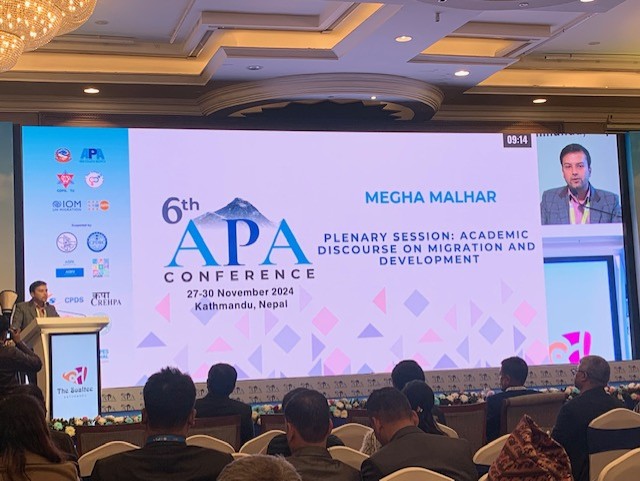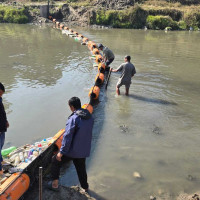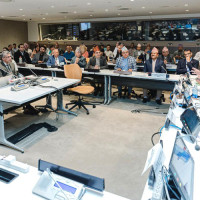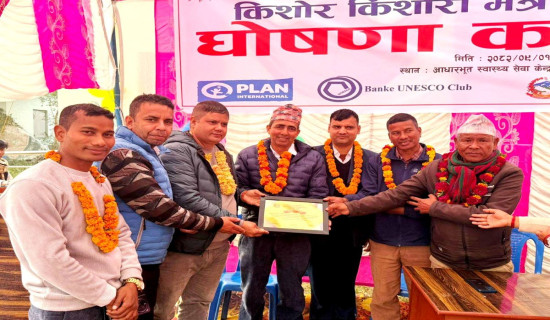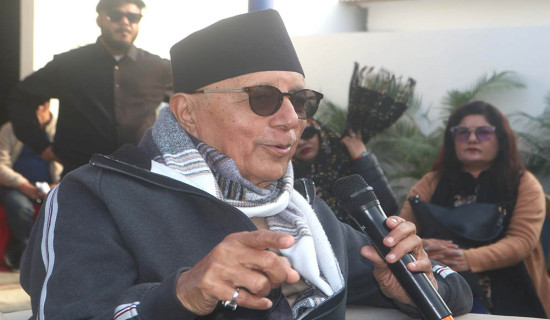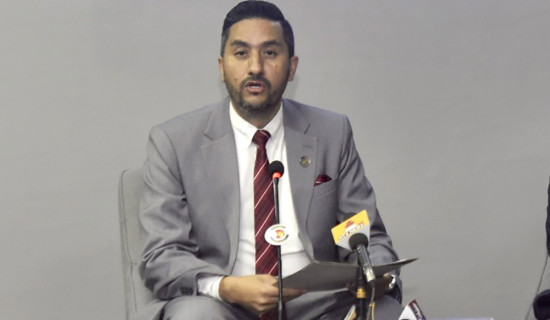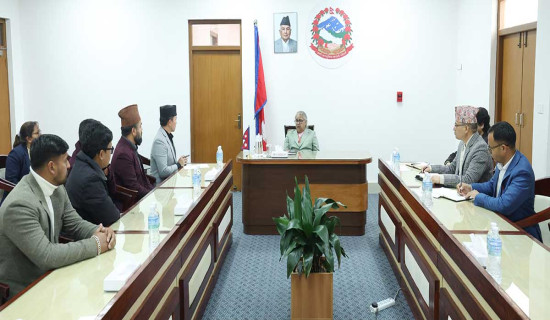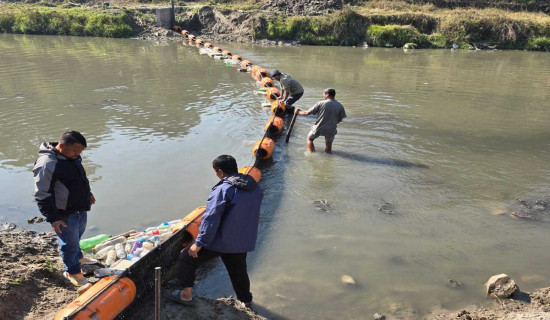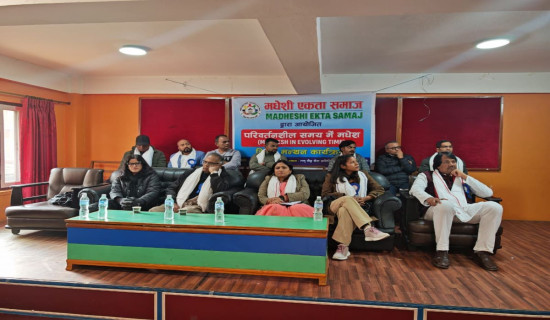- Sunday, 21 December 2025
6th APA Conference concludes with emphasis on demographic challenges, sustainable development solutions
Kathmandu, Nov. 30: The four-day-long 6th Asian Population Association (APA) Conference ended on Saturday with intensive debates and deliberations from politicians, scholars, practitioners, demographers and officials from different countries.
Starting on November 27, the 6th APA Conference witnessed policymakers, researchers, and international experts and their discussions on the pressing demographic issues of Asia.
In the concluding remarks, Minister for Labour, Employment and Social Security Sharat Singh Bhandari praised the APA Conference for providing a great platform for dialogue and collaboration on pressing demographic challenges facing Asia.
Minister Bhandari also made commitments to improving the lives of Nepali migrant workers by enhancing their legal protection, access to healthcare, and skills development.
The National Organizing Committee stated that the conference featured 237 presentations and 186 poster presentations, spanning over 17 themes, along with 59 oral sessions and four poster sessions.
The presentations were about population dynamics including aging populations, migration, gender equality, health disparities, and the implications of climate change.
The conference explored the complex interplay between social, economic, and demographic factors, leveraging contemporary demographic data and analysis to address critical population challenges, Chairperson of the National Organizing Committee of 6th APA Conference Prof Dr Yogendra Bahadur Gurung stated.
"It aimed to foster collaborative discussions and provide innovative solutions to address the pressing demographic challenges in Asia, ultimately contributing to sustainable development efforts in this region," Prof Dr Gurung said.
The conference discussed the Asian countries' major characteristics in population dynamics and stated that East Asia, South Asia, and Southeast Asia are experiencing significant demographic shifts, including low fertility rates, increasing life expectancy, and evolving marriage patterns.
The scholars at the conference stated that the rise of digital nomads is reshaping migration and labor markets, contributing to developing economies but facing challenges in taxation, stability, and integration. Education and policy investments were key to harnessing human capital, achieving demographic dividends, and ensuring sustainable development, the scholars highlighted in their presentations.
According to the scholars present at the 6th APA, marriage patterns and fertility decisions are influenced by factors like education, gender attitudes, and economic conditions, leading to delayed marriages in some countries.
Likewise, the experts stated that gender-specific interventions are crucial for improving maternal and child health and addressing issues like stunting, anemia, and low birth weight.
As stated, climate change impacts have intensified food insecurity and health risks, particularly for the population engaged in agriculture and those living in coastal.
The conference concluded that girl trafficking in Nepal's border regions persisted despite awareness. "Gender, societal norms, culture, and poverty influenced health, contraceptive use, disease prevention, mental health, education, and empowerment, requiring culturally sensitive interventions," the conference concluded.
Concluding that migration was shaped by cultural norms, care needs, and systemic challenges, the conference has made a recommendation that the labour migration policies should ensure access to education, healthcare, social security, and protection from harm. It said that parental migration impacts children's mental health, with higher risks for internal migrants’ children.
According to Prof Dr Gurung, who is also the Head of the Central Department of Population Studies of Tribhuvan University, the overall presentations in all sessions emphasized critical areas for policy reform and development across Asia. "Key topics included migrant rights, labor conditions, reproductive health, and gender-sensitive policies. The discussions also highlighted the need for family support for migrant workers, the importance of sub-national population projections, and the growing demand for urban resilience in rapidly expanding cities."
Prime Minister KP Sharma Oli had inaugurated the 6th APA Conference which was organized by the Central Department of Population Studies, Tribhuvan University, and supported by the Government of Nepal, International Organization for Migration (IOM), United Nations Population Fund (UNFPA) and other organizations.(RSS)

